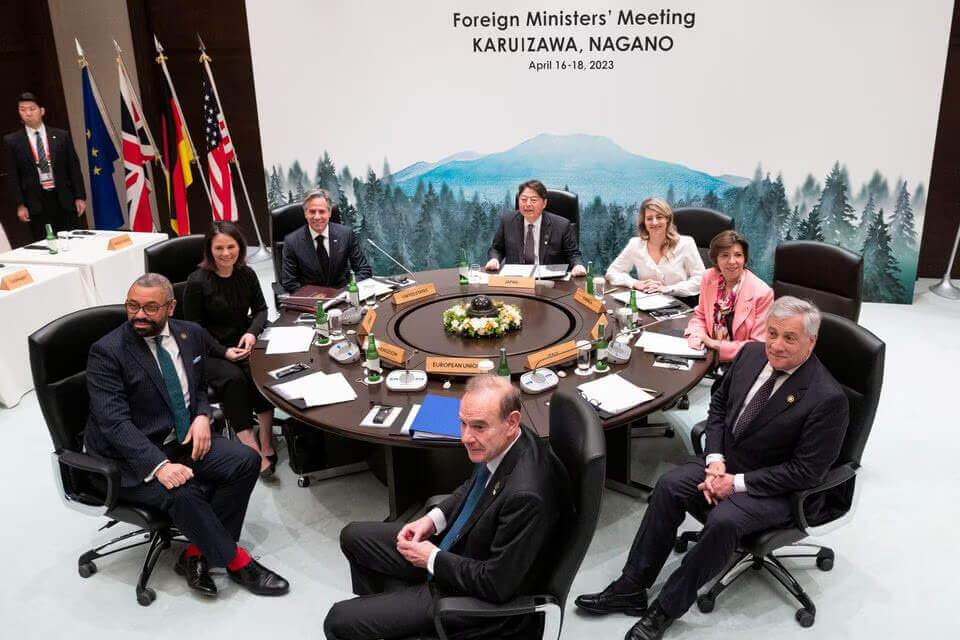In a joint statement following their meeting in Karuizawa, Japan, on Tuesday, the G7 member nations’ foreign ministers called on China to uphold the principles of the UN Charter and abstain from coercion in the international arena.
Technology
Stressing that “legitimate business activities and interests of foreign companies must be protected from unfair, anti-competitive, and non-market practices,” the group called on China “to uphold its commitments to act responsibly in cyberspace, including refraining from conducting or supporting cyber-enabled intellectual property theft for commercial gain.”
On South China Sea Dispute
Expressing that its members remained “seriously concerned” about the situation in the East and South China Seas, the G7 urged China to act in accordance with the principles of the UNCLOS and “abstain from threats, coercion, intimidation, or the use of force.”
It reiterated that there is “no legal basis for China’s expansive maritime claims in the South China Sea” and opposed the superpower’s militarisation of the region.
On Taiwan
The G7 stated that peace and stability across the volatile Taiwan Strait is “an indispensable element in security and prosperity in the international community.”
#FMsays Beijing opposes the #G7 foreign ministers’ statement that maliciously smears China, urging the bloc to stop pointing fingers at other countries and deliberately creating antagonism and division in the international community, FM spokesman Wang Wenbin said on Tuesday. pic.twitter.com/FYaKser0N8
— China Daily (@ChinaDaily) April 18, 2023
The group supported Taiwan’s “meaningful participation” in international organisations, including the World Health Assembly and WHO technical meetings – a seat the self-governing island has long been fighting for.
On Human Rights
The grouping stated that will continue to raise its concerns surrounding reported human rights violations and abuses perpetrated by China, including in Xinjiang and Tibet.
Referring to “the continued erosion of Hong Kong’s autonomy rights and freedoms,” it called on the Beijing to “act in accordance with its international commitments and legal obligations,” including the Sino-British Joint Declaration and the Basic Law.
Nuclear Threat
The G7 aired its concern about China’s “ongoing and accelerating expansion of its nuclear arsenal, and development of increasingly sophisticated delivery systems, without transparency, good faith arms control or risk reductions measures.”
To this end, it also urged China “to engage promptly in strategic risk reduction discussions” with the US and “promote stability through greater transparency” by discussing its nuclear weapon policies, plans, and capabilities.
Cooperation
However, the group recognised “the importance of engaging candidly” and “the need to work together” with China on “global challenges,” including on climate change, biodiversity, global health security, and gender equality.
“We stand prepared to work together to build constructive and stable relations through dialogue and to promote global economic recovery and people-to-people exchanges in a mutually beneficial way,” the G7 underscored.

